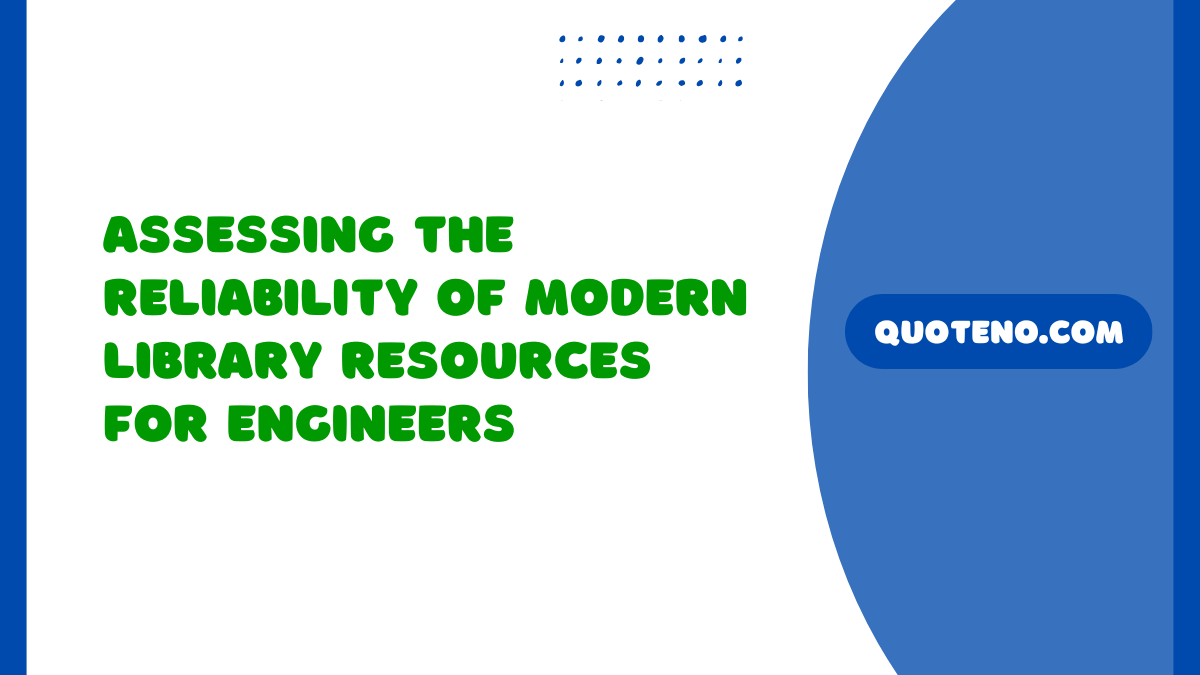Engineering libraries have transformed from physical collections to digital resources, providing engineers access to vast technical data, research papers, industry standards, patents, and software design tools. This access improves research efficiency, enables rapid prototyping, and facilitates collaboration with global colleagues. However, digital content presents new challenges, as the reliability and quality of available resources can vary widely. Engineers must critically evaluate the credibility, accuracy, and currency of information drawn from these vast collections to ensure successful practice in the era of information overload.
Table of Contents
Evaluating Source Credibility
Engineers must evaluate library resources to maintain technical accuracy and professional integrity. Credible resources include authorship, publication venue, currency, and references. Authors with recognized qualifications or significant contributions are preferred. Publication venues indicate extensive critical review, while outdated resources can lead to flawed analysis. Quality resources cite other reputable works, providing a clear trail of evidence. These attributes help ensure research transparency and robust scholarship in engineering fields. Utilizing specialized tools like a CAD library New York can further support technical precision by offering access to reliable, up-to-date design components tailored to industry standards.
Leveraging Peer-Reviewed Journals
Peer-reviewed journals are reliable sources of engineering knowledge, as they require critical review by independent experts to filter out flawed methodologies and speculative findings. Major platforms house extensive collections of peer-reviewed articles, technical papers, and industry standards. Prioritizing these publications ensures access to up-to-date advancements and increases professional credibility, supporting technical rigor and trustworthy knowledge.
Developing Information Literacy Skills
Information literacy is a crucial professional competency for engineers. It requires skills in factual judgment, bias detection, and understanding technical sources. Libraries provide workshops, online resources, and personalized training, enhancing engineers’ ability to identify credible and actionable information.
The Role of Engineering Societies
Professional societies like ASCE and IMechE set the standard for reliable technical information by maintaining extensive libraries of peer-reviewed publications, technical codes, industry standards, and continuing education resources. They organize technical webinars, workshops, and conferences to provide direct access to advancements and networking.
Conclusion
Engineers in today’s digital landscape face increasing challenges in evaluating resource reliability due to the abundance of information available. Strategic use of peer-reviewed journals, authoritative databases, and specialty collections is crucial. Building strong information literacy skills helps ensure quality, safety, and innovation in engineering solutions.
- Top Group Camping Activities to Enhance Your Outdoor Experience - February 26, 2026
- How Modern Orthodontics Is Changing Smiles for All Ages - February 26, 2026
- How Personalized Weight Loss Plans Are Transforming Lives - February 26, 2026

